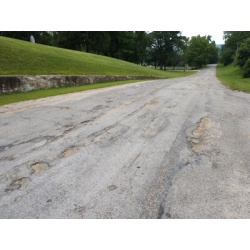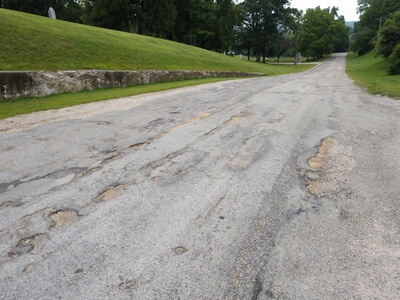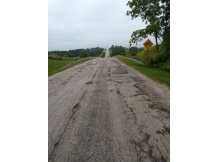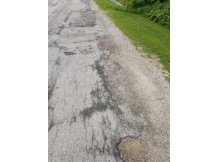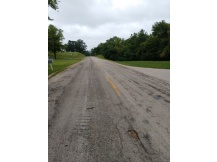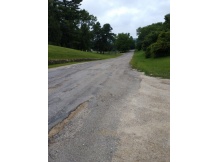
Should traffic levels be considered in deciding which Decorah street to pave next?
Posted: Mon, Aug 12, 2019 1:51 PM
(The following is analysis by decorahnews.com's Paul Scott):
I once was friends with someone who had worked as City Engineer in La Crosse, Wisconsin. He said to me once, "Everyone thinks they're a street engineer!"
Maybe we should have predicted the popularity of our Unscientific Survey of which Decorah street deserved to be paved first. But, in recognition of my friend, it's important to point out how difficult it is to decide how best to spend very limited funds.
For instance, what's more important--the quality of the pavement of a road or the volume of traffic that road handles? I know you're going to say both ought to be important, but let me give you an--ahem--"concrete" example of what I'm talking about.
Here's what one of our readers had to say in nominating Pleasant Avenue as Decorah's worst street: " My vote goes to the south end of Pleasant Ave (between Rural Ave and Siewers Spring Road). This section of the street is extremely dangerous for pedestrians, bikers and vehicles. It is filled with deep potholes and the edges are broken off and nonexistent making the road very narrow. At one crest of the hill the almost invisible center yellow line appears to jog causing oncoming cars to both be in the center of the road. And then there are the washed out areas (which looked to be about 2' deep) that occur because of the lack of curb and gutters. This street serves two cemeteries, many bicyclists headed to the two bike trails entering from Siewers Spring Road, the fish hatchery, the eagle's nest and a great number of walkers and joggers. The street should have curb and gutters and definitely a sidewalk. I urge you to walk this street and see for yourself how dangerous it is."
After heading out to Pleasant Avenue and taking a look myself, I'd have to agree with this reader--at least, based on the condition of the pavement. But I also think Locust Road and East Main Street deserve to be priorities because of the volume of traffic they handle.
So how do you balance traffic volume and pavement condition? Go ahead and act like you're a City Engineer--as my friend would say, "Everyone thinks they're a street engineer!"
Copyright © - decorahnewsarchive.com. All rights reserved.| Terms Of Use Statement.

Site designed and maintained by Iroc Web Design Services©.
Your Small Business Web Design Solutions.™
Site designed and maintained by Iroc Web Design Services©.
Your Small Business Web Design Solutions.™
